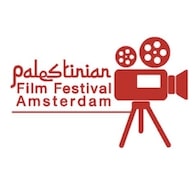Tatreez, traditional Palestinian embroidery, has long served as a hidden language, using motifs and colors to convey identity, origin, and emotion. During political repression, women embedded national symbols and protest messages into their stitching. This workshop explores tatreez patterns inspired by the Palestinian landscape, preserving cultural values and spiritual beliefs. A focus is placed on the cypress tree motif, which varies by region and symbolizes resilience and protection. Participants will learn to stitch the different variants of this motif, and are invited to design a new one which reflects the current symbols of resistance. The session is led by Hilda Moucharrafieh in collaboration with Waad and Ahd Hammad, founders of Darza Studio who will join from Jerusalem via video call to offer an introduction to Palestinian tatreez heritage.
This Sunday workshop is open to everyone, with a maximum of 10 participants. Registration is on a first-come basis, and all participants will be asked to complete a short questionnaire on their interest at registration.
The Palestinian
Tatreez workshop is one of four workshops taking place during the 2025 Palestinian Film Festival Amsterdam. For more details on the festival's programme of workshops, visit:
thepffa.nl/pffa-2025/films-and-events.
~
Hilda Moucharrafieh is a Lebanese artist and cultural worker focusing on anti-colonial solidarities and collective well-being. Through site-specific interventions, she amplifies voices marginalized by Western narratives and neo-colonial policies. She collaborates across disciplines to foster solidarity, co-directs Platform BK advocating for better art policy in the Netherlands, and serves as artistic coordinator at (A)WAKE in Rotterdam, where she co-curates the ‘New Radicalisms’ biennial as well as the current exhibition ‘OP=OP’ at moezeum.
Waad Hammad is a Palestinian fashion designer based in Jerusalem. Together with her sister Ahd, she co-founded Darza Studio in 2019 blending Palestinian heritage with sustainable slow fashion. Waad leads the creative design, while Ahd manages logistics and embroidery workshops that aim to preserve traditional craftsmanship. Working with women in Qalandia and Alaroub refugee camps, Darza Studio redesigns vintage thobes and creates hand-embroidered garments that embody memory, identity, and homeland. Each piece bridges tradition and modernity, turning fashion into wearable storytelling and a form of cultural preservation.
[IMAGE: Photo from Darza Studio, Jerusalem]
About Organizer
The Palestinian Film Festival Amsterdam (PFFA) envisions an inclusive podium to showcase a diversity of genres, including drama features, shorts, animations and documentaries, presented by both established and emerging Palestinian directors.Founded in 2015 by curator and film programmer Nihal Rabbani, the PFFA emerged from a grassroots community action, fueled by a commitment to create a platform that would address the exclusion of indigenous directors from Palestinian film programmes in the Netherlands.PFFA’s purpose is to counter the dominance of films and film programmes on Palestine by foreign and amateur directors. Often shot with handheld cameras, these are usually activist documentaries, which, though recording important political content, can tend to overshadow Palestinian voices in film. The ultimate goal of the PFFA platform is to bring visibility to Palestinian directors who are working across genres, including drama features, shorts, animations and documentaries; and to provide screening opportunities for them to share their artistic narratives and cinematographic experiments with audiences.The PFFA is the only running festival focused on Palestinian filmmakers in the Benelux region. The festival continues to expand and deepen its representation of Palestinian voices, both in film and from across fields of cultural production (ranging from photography, poetry and literature, to artisanal handcraft and culinary activism).
Know More
 Palestinian Film Festival Amsterdam
Palestinian Film Festival Amsterdam
